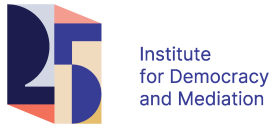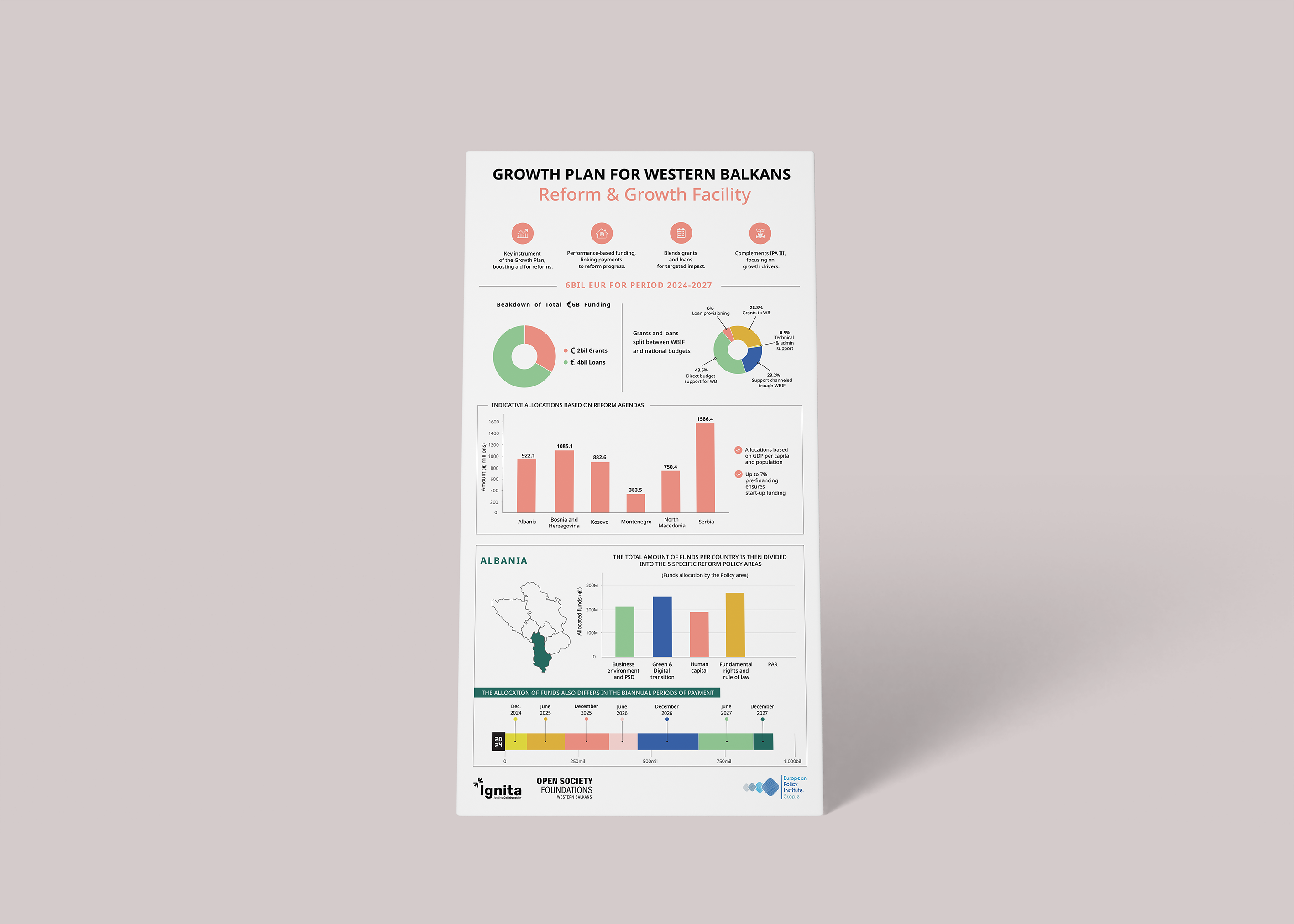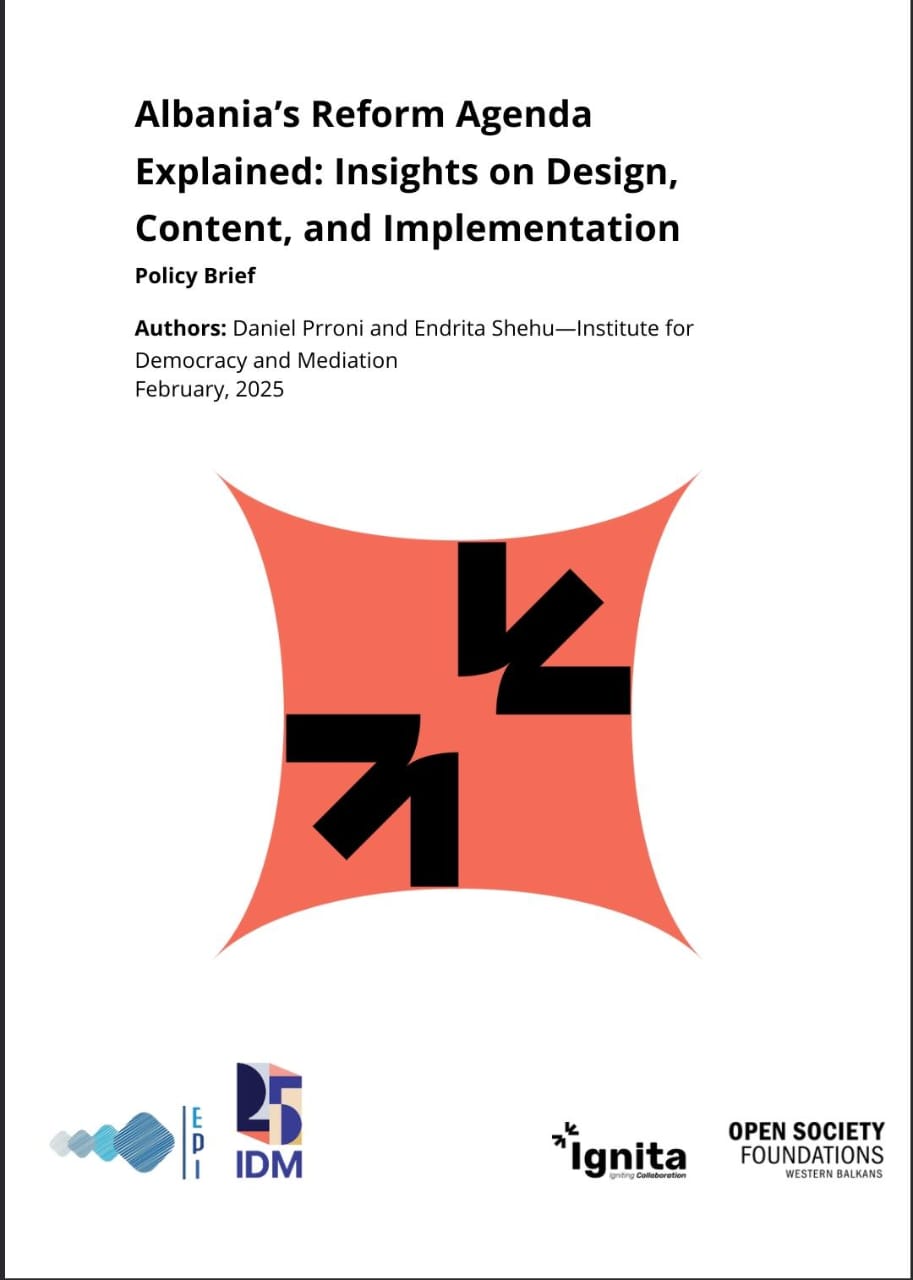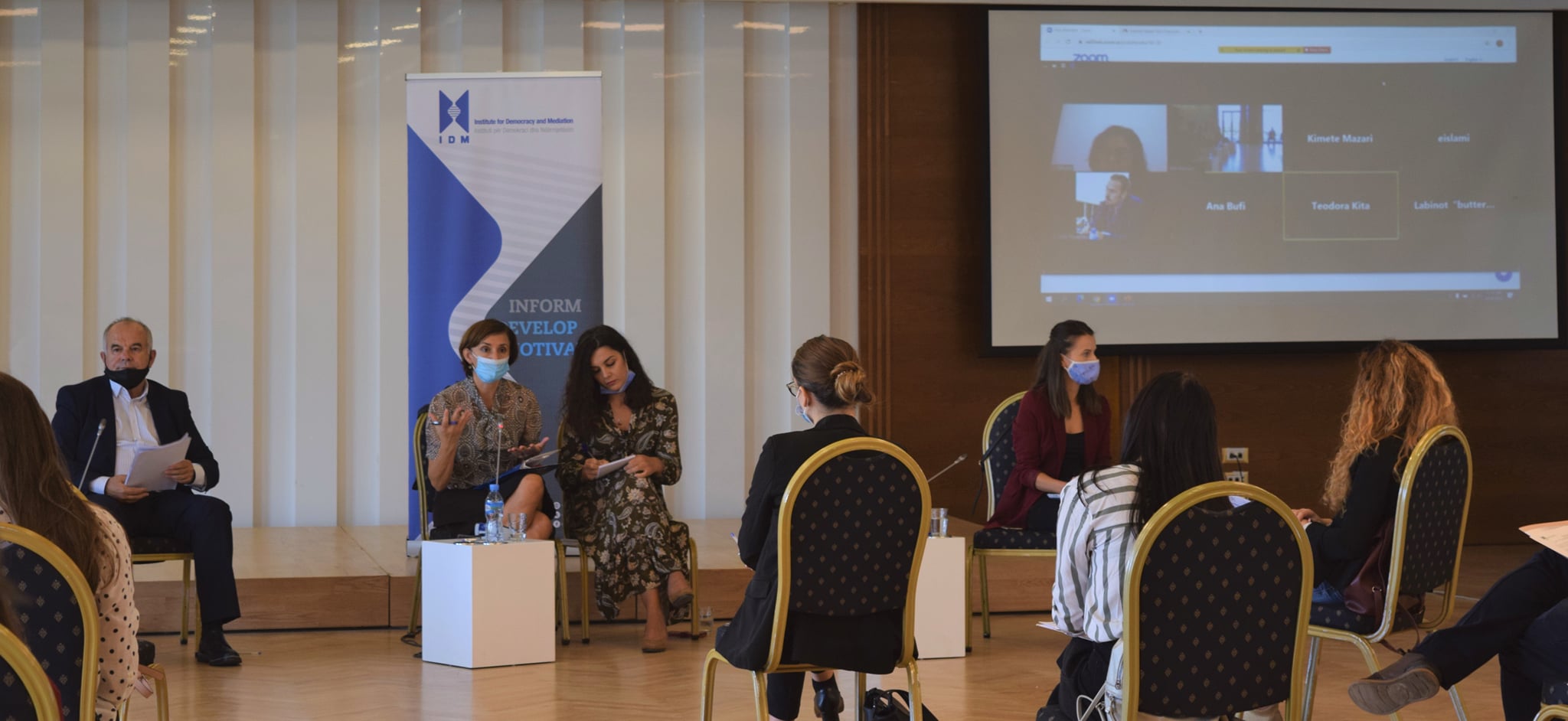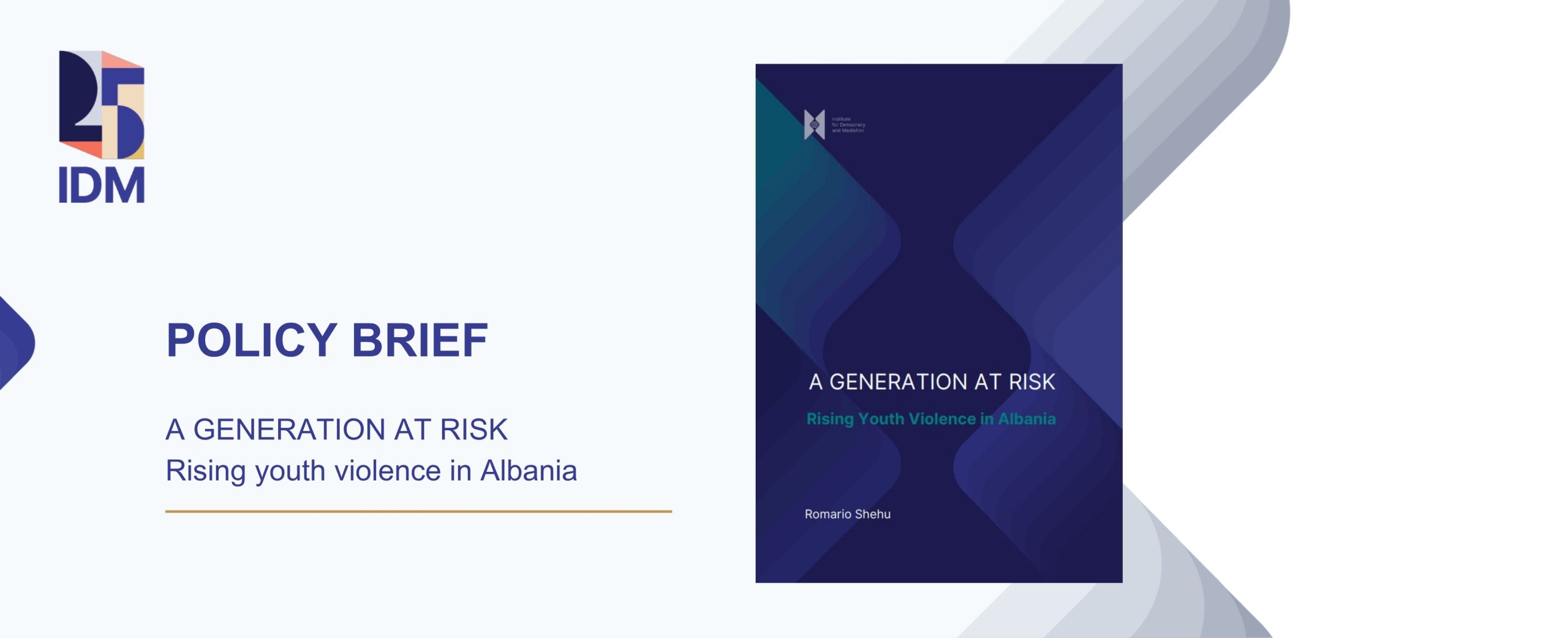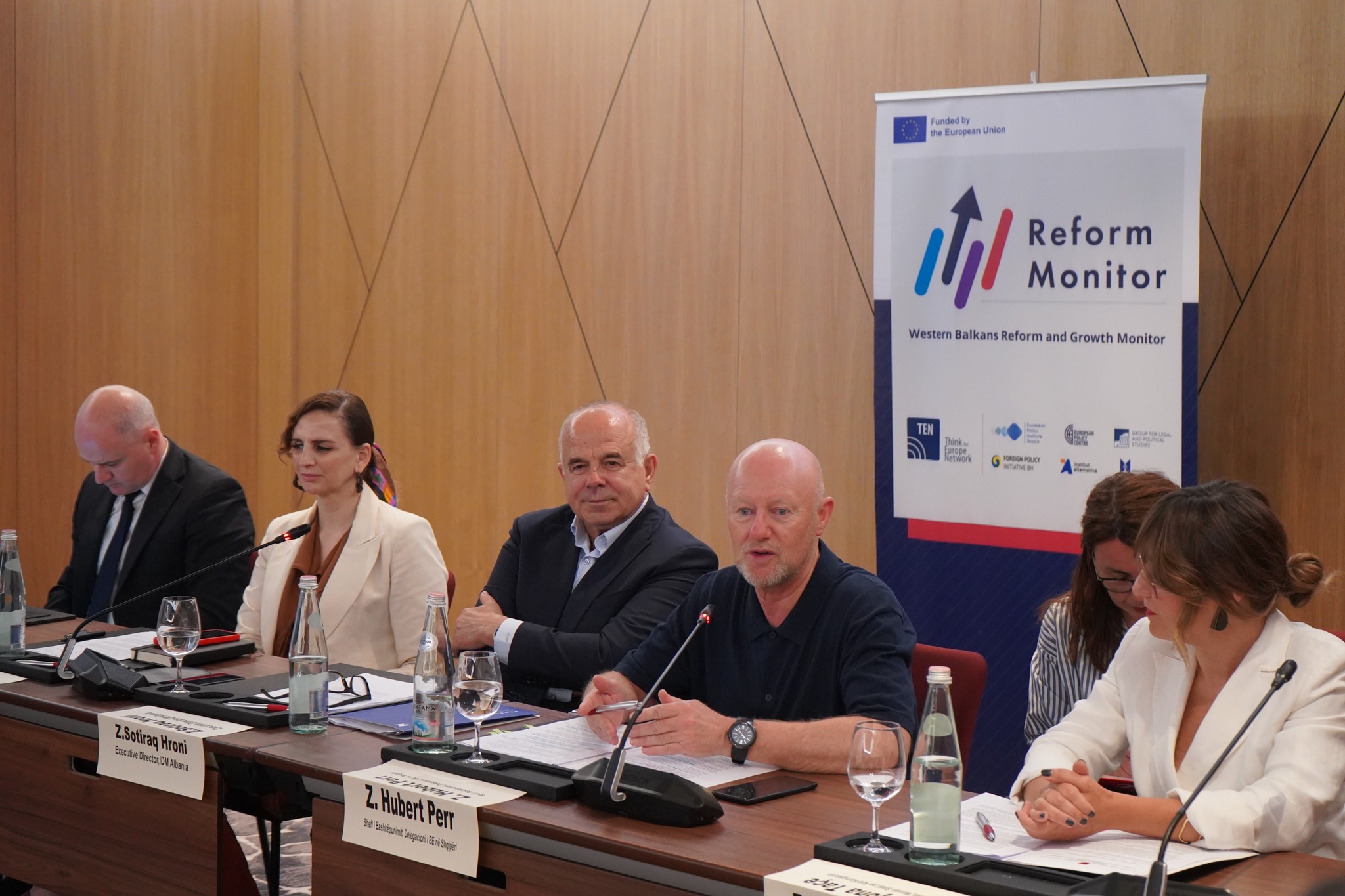October 2020 – The Institute for Democracy and Mediation (IDM), in partnership with the Albanian Helsinki Committee (AHC), are implementing an initiative
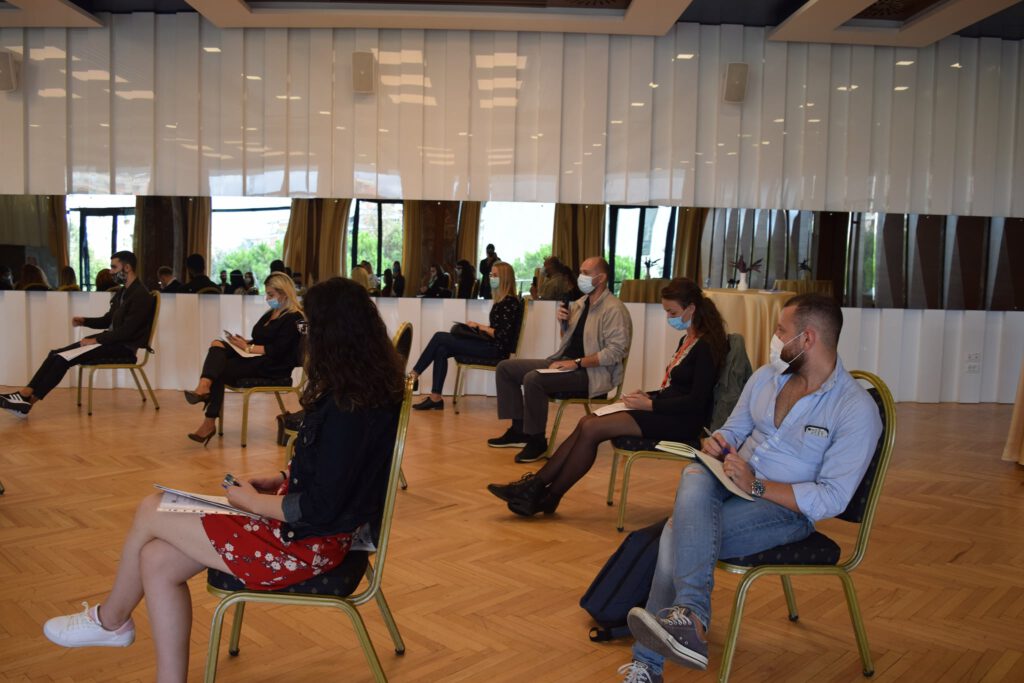
Kickoff workshop Tirana, 29 September 2020
which aims to create an enabling environment for active civic engagement in the legislative and decision-making processes of the Parliament to increase accountability and transparency of the elected representatives.[1]
In this context, IDM conducted four regional workshops[2] with representatives of the civil society organizations and activists, youth organizations in rural areas, children’s rights, persons with disabilities, Roma and Egyptian minority rights, business associations, farmers’ associations, media, civic networks in protection of natural resources, etc. from across the country.
These kickoff workshops at the regional level introduced the initiative
and its main pillars as well as paved the way for the animation of the Local Civic Networks. (LCNs) and channeling of the local concern into the parliamentary agenda.
Given the impact of the Covid-19 pandemic and the associated restrictions, it was possible for all meetings to take place simultaneously in person and online through the Zoom platform.
Key issues discussed in the workshops
The format of these regional kickoffs included the introduction of the initiative by IDM and AHC representatives and the presentation of the general approach of the project “Support to Parliament and Civic Education (PACEP)” by National Democratic Institute (NDI). Also, a representative from
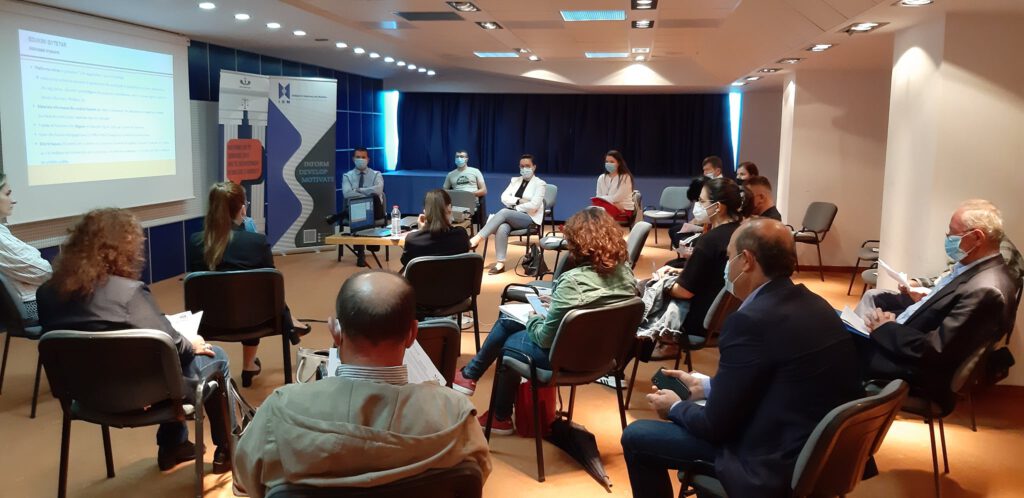
Kickoff workshop Vlore, 8 October 2020
the Parliament’s technical staff in the capacity of the Civil Society Coordinator introduced the existing mechanisms for civil society and interest groups’ engagement in the parliamentary activity. About 100 participants (including representatives of civil society organizations, individual activists, youth, informal community groups, etc.) attended these meetings and tackled issues such as:
- Civil society organizations’ experiences with the parliament: good practices and challenges
- Potential of Local Civic Networks to influence the legislative and decision-making activity of the parliament
- Mechanisms for increasing civil society and interest groups’ engagement
In general, in all of the workshops it was articulated the lack of trust in the Parliament, considering this as a challenge for to forge interest and facilitate the engagement of citizens in the activity of the parliament. Therefore, this project was welcomed and in particular the component of civic education to enable a bridge of cooperation and mediation of citizens with parliament.
On the one hand, a significant proportion of participants noted the positive experience of communicating with the parliament’s staff in response to requests for information and notification of legal initiatives being discussed in the Parliament.
In this regard, the representative of the Parliament also stressed the need to formalize this communication through the Coordinator for Civil Society and the Coordinator for the Right to Information.
Some of the identified issues during the four regional meetings with civil society actors are as follows:
- Despite the efforts of the parliament so far to bring civil society and interest groups closer to its activity, it is essential to increase the trust of citizens through a more open and cooperative approach by the parliament.
- Establishing a fair relationship between citizens, interest groups and MPs in the respective areas. The MP’s office in the area should be active and regular meetings should be held with local communities.
- Enabling the active participation of local organizations and interest groups in the activity of the Parliament, through a space dedicated to the contribution of CSOs during the hearings.
- To reduce the gap between the parliament and the citizens by creating online platforms where access will be easier and the activity of the parliament will be presented in a simpler language.
- The connection of rural areas with the Parliament is very weak and stable communication bridges need to be established.
buy aurogra online buy aurogra online generic
In this regard, it is necessary to inform every interest group on the parliamentary activity throughout the country. - Communication should be two-way (civil society-parliament), and civic education informational activities should be extended to MPs.
- Creating networks of stakeholders based on issues/themes and enabling close cooperation with the media to empower civil society initiatives is necessary to strengthen common causes in parliament.
- Increasing the capacity of civil society and interest groups to enable advocacy and bring concrete civic initiatives in Parliament. In this regard, it can be built on the gained experience and good practices of interaction with the local government.
buy stendra online buy stendra online generic - Review the mechanisms involved in legislative processes and parliamentary decision-making of vulnerable groups: such as persons with disabilities, members of the Roma and Egyptian minorities, women and youth in rural areas, etc.
- Adding rural issues and environmental issues on Parliament’s agenda.
- Completing the legal framework for national and local referendums.
The general assessment of the participants was that communications and discussions on issues of influence and engagement in the activity of the parliament have not been in the focus of the activity of local civil society organizations, despite the importance of this institution. They also stressed the need for such meetings to be more frequent and ongoing to develop an agenda with local priorities of citizens’ needs and bring it to the attention of the parliament.
[1]This initiative is being implemented in the framework of “Support to Parliament and Civic Education in Albania” (PACEP), a project of the Swiss Agency for Development and Cooperation (SDC), implemented by the National American Democratic Institute (NDI). Read more:https://idmalbania.org/new-projectwidening-the-democratic-space-through-citizens-engagement-in-decision-making/
[2]The workshop in Shkodra took place on September 24 and included civil society organizations and interest groups from Shkodra, Lezha, and Kukës. In Tirana, on September 29 with participants from Durrës, Tirana, Dibër. In Elbasan, on October 6 with participants from Korça, Berat, Elbasan. In Vlora, on October 8 with participants from the regions of Fier, Gjirokastra and Vlora.
